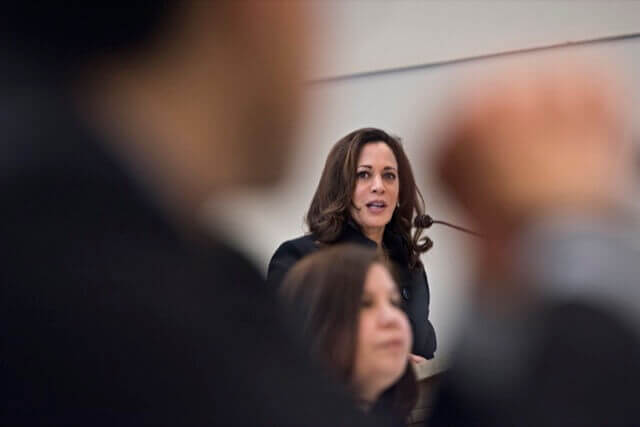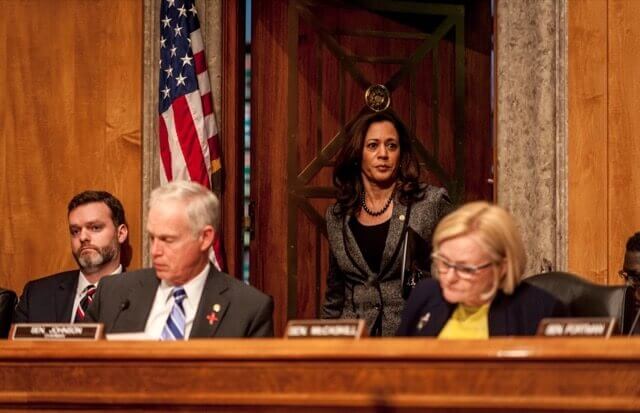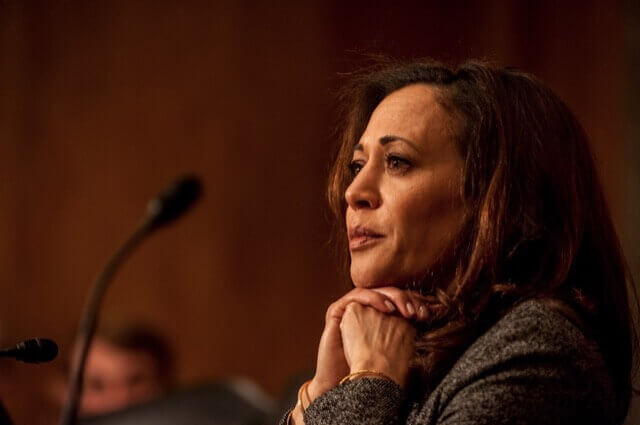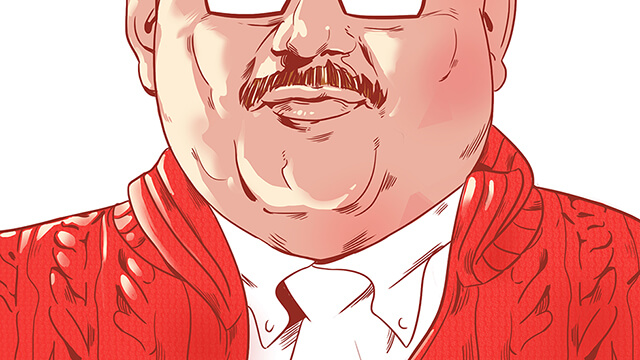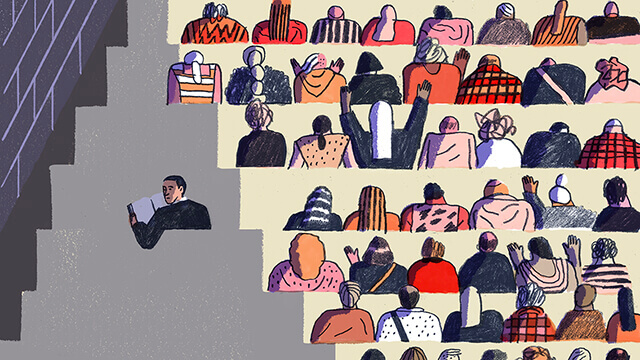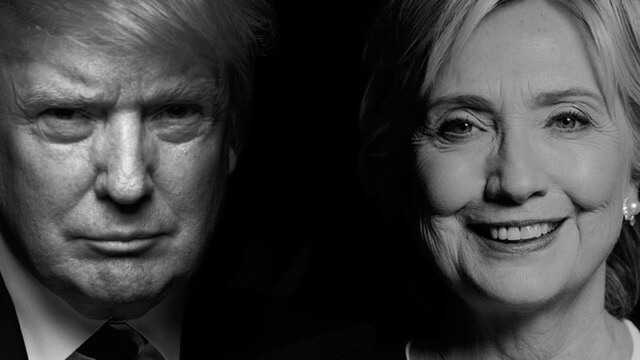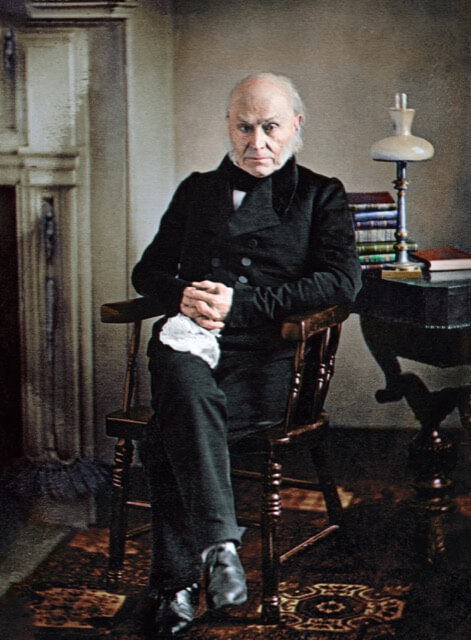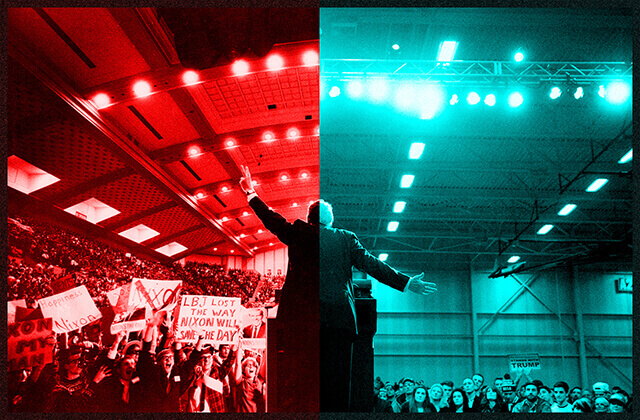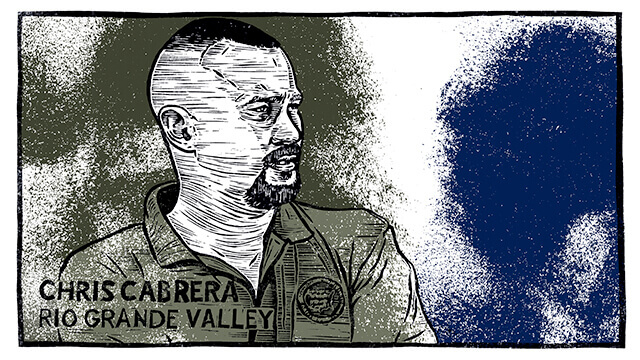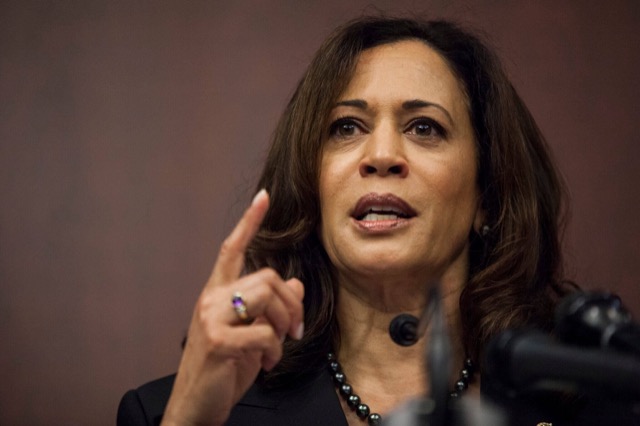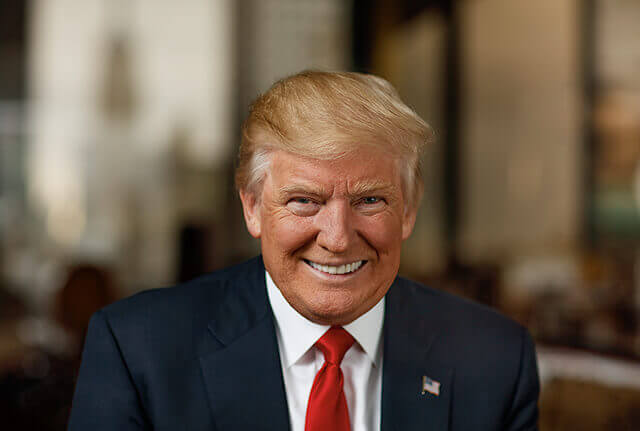Los Angeles -- For someone with Kamala Harris' star power and potential, there's a time-honored script for how to behave as a novice senator. It's the same rule Barack Obama, Hillary Clinton, Al Franken and others followed as high-profile freshmen: They were seen and not heard. They kept their heads down, learned the byzantine procedures and traditions of the institution and, above all else, attracted as little attention to themselves – and their future ambitions – as possible.
But in the age of Donald Trump, Harris is tossing out the rulebook.
In the first 100 days of the Trump administration, Harris has been at the center of the resistance to his presidency. A day after his inauguration, she was at the podium during the women's march on Washington, delivering a fist-pumping speech denouncing Trump's agenda. When the President's first targeted travel ban took effect a week later, she was back on the protest line in front of the White House, stomping her feet and shouting "No ban! No wall!" alongside other demonstrators. She opposed Trump's nomination of Neil Gorsuch to the Supreme Court. She'll deliver a high profile commencement address next month at Howard University.
She often delivers her strongest statements on social media. Pinned to the top of her Twitter page during Trump's first month was her call to action: "If you've ever wondered what you would have done during the Civil Rights Movement, this is your opportunity to find out. #goodtrouble."
Harris doesn't have to play the same muted, behind-the-scenes role as Obama and Clinton did during their Senate tenures because "it's just a different time," Bill Burton, a former Obama adviser who is now a Democratic strategist here, told me recently.
Right now is an all-hands-on-deck moment for Democrats. Her voice isn't just a good one, it's a necessary one to help capture all the energy and enthusiasm that Democrats on the left have right now.— Bill Burton, Democratic strategist and former Obama adviser
Right now is an all-hands-on-deck moment for Democrats," he said. "Her voice isn't just a good one, it's a necessary one to help capture all the energy and enthusiasm that Democrats on the left have right now.
In a strange way, moving to Trump's Washington is a stroke of luck for Harris, whose first name is pronounced COMMA-la. The newly elected Democratic senator from California is a comforting antidote for the left at the moment. She's a fresh face in the capital for a party desperately searching for a new generation of leaders and has a sense of youth, glamour and charisma that inevitably -- if not always accurately -- harkens back to Obama's first days on the political scene. She is also associated with the former President in part because of how he described her at a fundraising stop in San Francisco four years ago. And by representing the state that is in many ways home to the resistance against Trump, Harris is uniquely positioned to keep her finger on the pulse of the Democratic base.
Cue the questions about 2020. She's already a trailblazer as the Golden State's first African-American senator and the first Indian-American senator in the country. And she's a prominent woman in a party still reeling from both losing the White House and watching the historic feat of electing the first woman president slip out of their hands.
Harris, 52, brushes off chatter about a future presidential run. Asked about potential presidential plans by CNN senior political commentator David Axelrod on his podcast, "The Axe Files," she said firmly: "I'm absolutely not thinking about that at all."
"There are a lot of very big issues that are on the table right now, and we have to be alert and present, like, right now," she said.
She wouldn't sit down for an interview for this story – one of the few ways she's actually following the script of a prominent freshman. But there's no question that her arrival in Washington at the same time as Trump may offer a helpful platform for her to gain national prominence.
No Democrat would have wanted a Trump presidency, but in many ways it's perfect for someone with the energy and talent of Kamala Harris," Burton said. "She is someone who has great instincts about how to get engaged in a fight.
At the same time, she is more reserved about her personal story than Obama was when he began positioning himself for higher office. While Obama wrote extensively about how the search for racial identity shaped his journey, Harris seems reluctant to engage on that topic, at least for now. When asked by Axelrod whether she gets sick of the anthropological questions, she laughed, admitting it's "uncomfortable" to talk about herself.
I was raised to do," Harris replied. "I was raised that you do, you don't talk about yourself, you just do. You don't talk about it after you've done it; you just do the next thing…. I would prefer to talk about what needs to get done, versus talk about myself.
For all the attention she generates, Harris is hardly on a glide path to higher office. She must prove whether she can harness her celebrity status into something more concrete. And plenty of her colleagues, including Sens. Elizabeth Warren of Massachusetts and Cory Booker of New Jersey, are making moves that leave the political classes buzzing with presidential speculation.
"It's all well and good, especially in this day and age, to have an active presence on Twitter and social media, but if you're really serious about things in the Senate, you've got to try to get something done or block something -- and for Senator Harris it remains to be seen whether she can do that," said Jim Manley, who worked in the Senate for 21 years and was a top aide to then-Senate Majority Leader Harry Reid.
We're about to head into the tough stretch where she's going to have to demonstrate whether she wants to play the inside game or the outside game.— Jim Manley, longtime Senate aide
It's pretty obvious she's been raising her profile, ... trying to demonstrate she's a player in the Senate," he said. "But that's the easy part. We're about to head into the tough stretch where she's going to have to demonstrate whether she wants to play the inside game or the outside game.
So far, Harris is playing both. She is acquiescing to the desire of the base to fight the Trump administration at virtually every turn. But she is also quietly reaching out to Republican colleagues, including South Carolina Sens. Lindsey Graham and Tim Scott, according to several sources, proposing casual meals in Washington to discuss policy and lay the groundwork for future legislative collaborations.
After fielding invitations from her office for a breakfast or lunch, Graham recently stopped Harris on the Senate floor, telling her she should take him to dinner.
"Why?" she asked. "So I don't have to pay," he replied glibly.
In these early weeks, Harris is positioning herself as a champion for California's immigrants -- particularly the 2.4 million undocumented in the state, as well as the many "mixed status" families where one or both parents is undocumented. (About half of California's children have at least one immigrant parent, according to the Partnership for a New American Economy).
Harris initially sought a coveted spot on the Judiciary Committee, according to two sources, but landed instead on the Homeland Security and Governmental Affairs panel, one of the four committees she’s serving on, where she's driving her immigration agenda on Capitol Hill. She pressed the Trump administration about its plans on the Deferred Action for Childhood Arrivals, the Obama-era protections for young undocumented immigrants (the so-called "dreamers"), during John Kelly's confirmation hearing to become secretary of Homeland Security.
When Trump released his first travel ban and confusion reigned at airports across the country, Harris says she called Kelly at home on a Saturday evening, imploring him to rectify the situation.
I called him at home because I got the number," she said with a laugh while recalling the story last month to agents, executives and actors who gathered to hear her speak at a forum held by the Creative Artists Agency. "I was really unsatisfied with the conversation.
The ban – which was blocked by a federal court and later replaced by a more tailored measure which was then gutted, at least temporarily, by another federal court – spurred her first piece of legislation, the "Access to Legal Counsel Act," which would guarantee access to a lawyer “to all persons who are held or detained at a port of entry or at any detention facility” for refugees held or detained while attempting to enter the US.
I caught up with Harris recently as she had a lunch in the Los Angeles neighborhood of Van Nuys with families who were impacted by the first travel ban and the lawyers who represented them. Afterward, she spoke to a gaggle of reporters and blasted the new immigration guidance that had just been issued by the administration, questioning how local officers could fulfill the new immigration enforcement role outlined in the DHS memos.
When we start knocking on people's doors, knocking on their door because we suspect they may have committed a crime, and on that basis we start deporting them, hard-working families – dividing families, and separating families – it's certainly immoral.— Kamala Harris
Local law enforcement is strapped," she said, standing outside a Syrian restaurant. "They barely have enough resources to respond to the domestic violence call, the homicide call, the gang enforcement call. … Now we're going to have an administration in Washington, D.C., that says local law enforcement must enforce immigration policy -- new immigration policy that says we're going to lower the bar in terms of who gets deported? It's outrageous. It's extreme.
But was it illegal? She was pressed on that question the next day by reporters after she attended a policy forum on immigration and struck a more cautious tone that served as a reminder of the lawyerly approach she still takes from time to time in her new job.
I'll say this," she said, her voice rising. "When we start knocking on people's doors, knocking on their door because we suspect they may have committed a crime, and on that basis we start deporting them, hard-working families -- dividing families, and separating families -- it's certainly immoral.
The senator, who had just met with the Los Angeles County sheriff and immigrant aid workers, told reporters she wanted to convey a message to all the "law-abiding" undocumented immigrants who are anxious and fearful under the new rules.
My word to these families," she said, "is ‘don't let anyone take your pride from you.'
Federal courts later blocked Trump's ban and then placed a temporary restraining order on the implementation of significant parts of a subsequent order from the White House.
Harris may be aiming for a high profile in Washington but she hasn't always been so outspoken. As California's attorney general, the perennial criticism of her was that she was too cautious when it came to matters that might create controversy in a future political campaign, a criticism that recalls one that long dogged Clinton during her presidential bids. Harris' longtime friends and advisers say that was more about the restrictions of needing to be "an attorney's attorney." Once she claimed the mantle of senator, they say, the gloves were off.
She signaled her new style almost immediately after claiming victory on Election Night last November, easily dispatching her opponent, Democratic Rep. Loretta Sanchez. Democrats were absorbing the reality that Trump, rather than Clinton, would be the next occupant of the White House and Harris didn't dwell on her own victory.
In her eight-minute speech, Harris argued that America is at "an inflection point" similar to the one her parents found themselves at when they met as graduate students at University of California, Berkeley in the midst of the Civil Rights Movement. Alluding to what she viewed as the threat of Trump's policies, particularly to immigrants, she cited the rallying cry of activist Coretta Scott King that "freedom is never really won; you have to earn it and fight for it in every generation."
"When our ideals and our fundamental values are being attacked, do we retreat or do we fight? I say we fight," Harris said, using that word about 20 times while vowing to press for comprehensive immigration reform, LGBT and women's rights, environmental protection and backed the black lives matter movement.
In California, Harris has been viewed as a rising star on the Democratic bench ever since she burst on the political scene.
She was born in Oakland to Jamaican and Indian immigrants who later divorced when she was 5. She was raised by her physician mother in Berkeley with her sister Maya, who went on to be a civil rights attorney and adviser to Hillary Clinton. (The girls visited their father, a Stanford University economics professor, in Palo Alto on weekends).
Harris's best friend since kindergarten, Stacey Johnson-Batiste, told me Harris has always had a fierce, strong-willed quality about her -- one that she has seen on display during her friend's first weeks in Washington. Johnson-Batiste recalled Harris defending her from a bully in kindergarten by confronting him directly.
She stood up to him, even then, and he picked up a rock and hit her in the head," Johnson-Batiste said. “Kamala has been this way ever since we were kids. She speaks out for what's right; she's always had a really good moral compass.
After attending Howard University, Harris went to UC Hastings College of Law in San Francisco and built her resume as a prosecutor in Alameda County and San Francisco, trying gritty cases that included crimes against children, assault and murder.
I knew then, in the mid-1990s, that she was on her way.— Stacey Johnson-Batiste, Harris' childhood friend
Johnson-Batiste lived with Harris in Oakland during those years when she was a young attorney. "I would see her every morning, suited, with her briefcase, walking with a purpose up to the courthouse," she said. "I knew then, in the mid-1990s, that she was on her way."
When Harris began dabbling in politics and decided to run for District Attorney of San Francisco in 2003, she counted the powerful longtime state Assembly Speaker Willie Brown among her mentors. Brown and Harris had dated years before, and her opponent, incumbent district attorney Terence Hallinan, tried to paint her as a part of his political machine. She defeated Hallinan, and, at 39, became the first woman to hold that job.
Though she is viewed as one of the Democratic Party's most promising politicians, Harris has some significant vulnerabilities if she sought higher office – some of which sparked divisions in her own party. Her opposition to the death penalty, for example, was used against her by a Republican opponent when she campaigned to be state attorney general. She also faced uncomfortable questions in 2009 after the Los Angeles Times reported that undocumented immigrants were erroneously allowed into a program she designed to keep offenders out of jail.
Harris developed the "Back on Track" program while experimenting as D.A. with techniques to steer non-violent offenders toward job training and away from the prison system. It also offered participants better access to health care, parenting classes, therapy and education -- smoothing their entry back into society.
Over the course of the six years that Harris was D.A., 650 people participated in San Francisco's "Back on Track" effort, according to staff in that city's district attorney's office who were involved in the program. But one participant, according to the Los Angeles Times, was in the US without papers, avoided prison after pleading guilty to a drug felony, went on to steal a woman's purse and then try to run her over with an SUV, fracturing her skull.
Harris told the Times that she learned undocumented immigrants were enrolled in the program when the assailant was arrested. She told the Times she had never asked how many illegal immigrants ended up in the program.
In a Los Angeles Times Op-Ed published a few days after the story, Harris defended the program, noting it had dramatically reduced recidivism within its targeted population. She said the admission of the undocumented immigrant, Alexander Izaquirre, into the program stemmed from a "flaw in the initiative" that "was fixed when it came to my attention."
As San Francisco's district attorney, Harris was also engulfed by controversy soon after taking office in 2004 when she decided not to seek the death penalty for the killer of San Francisco police officer Isaac Espinoza.
Then-US Senators Dianne Feinstein and Barbara Boxer, among other members of her party, openly broke ranks with Harris and said she had made the wrong decision. The case damaged her relationship with law enforcement agencies and unions around the state, and would have long-lasting ramifications for her political career.
When she ran for state attorney general in 2010 against Los Angeles County District Attorney Steve Cooley, a Republican, she received almost no support from law enforcement. Anger about the cop killer case lingered and a national Republican group ran a powerful ad against her, citing her opposition to the death penalty. She ultimately won the race by less than one percentage point, one of the closest statewide races in California history.
She immediately began traveling all over California to meet with law enforcement officials, trying to assuage concerns about her credentials. One-on-one in those meetings, she was engaging and persuasive, ultimately winning over many of the same groups that had shunned her by the time she ran for re-election in 2014. Those interpersonal skills, honed as a prosecutor, could breed success in the Senate, her long time adviser Sean Clegg told me, helping her engage colleagues on her legislative goals, which include criminal justice reform and college affordability.
"That's her secret weapon," Clegg said of her powers of persuasion.
Harris' heightened profile has not gone unnoticed in the Golden State.
"In the state of California, there's no downside to being a vocal opponent of Donald Trump; if there was a normal administration in power, she would probably not be as prominent," said John J. Pitney, a politics professor at Claremont McKenna College who carefully followed Harris's political career in California.
Even the calls for her to run for president in 2020, he said, are unsurprising.
"The Democratic bench is so thin," Pitney said, "and we already have a very recent precedent of first term senator running for President. Kamala Harris has far more government experience than the current occupant of the White House.
In the state of California, there's no downside to being a vocal opponent of Donald Trump; if there was a normal administration in power, she would probably not be as prominent.— John J. Pitney, politics professor at Claremont McKenna College
Rose Kapolczynski, a Democratic strategist who was Boxer's longtime advisor and campaign manager, noted that while most freshmen senators take their time building their profile, Harris doesn't really have that luxury.
"Among progressives there is an intense feeling that there's no time to wait, every minute counts in opposing Donald Trump," Kapolczynski said. "Any Democratic senator who plays it safe or goes slow is going to be under intense criticism.
Harris has mostly avoided national news interviews and outlets since taking office, choosing to communicate with her fans via social media.
Her emoji-studded tweets and frequent Facebook posts, on her political (not official) accounts, have been shepherded by the same firm that helped Vermont Sen. Bernie Sanders build his enormous following. She recently hit the half-million mark for followers on Facebook, one adviser said.
Naturally, she took to Facebook to mark the milestone. "Never before have we needed an army of people who are willing to fight for the cause of justice and equality," she wrote, promising to "speak truth to power and fight for the voiceless."
She asked her followers to get their friends and family to "join our movement."
"I'm going to need your help every step of the way," she wrote
If restless Democrats have their way, it might be a quick ascent.




